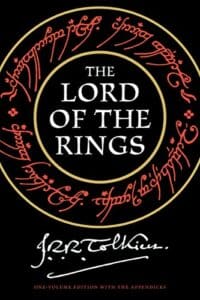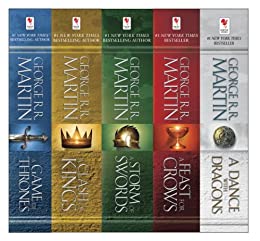When I was a very small kid, my Dad read The Hobbit to me. Very soon, I was reading it, and The Lord of the Rings with him. Dad wasn’t a huge fantasy nut like me, but he liked Tolkien. I’m going to assume his interest gave rise to my own.

Either way, I loved it. I loved it so much I now write fantasy full time.
I can’t say exactly when my love of fantasy become a love of mythology, but it definitely started preteens for me. I became obsessed with the roots of fantasy: myths and legends.
As I got a bit older I also realized that these stories never existed in a vacuum.
To understand the myth, I had to understand the culture that gave rise to it. That brought me to an enduring interest in ancient, Classical, and medieval history. Also in cultures around the world, which eventually led me to meeting my wife while backpacking.
Which is a whole other story.
Through exploring myths and cultures, I dove into both Western and non-Western myths and philosophies.
And I kept wanting to tie my fantasy back to that.
It would be very easy to call historical works like Beowulf or even The Odyssey the earliest fantasy works. Since we don’t really know how much the authors believed the supernatural elements they described could be or were real, I’m going to call those rather ancestors of the genre we know and love.
Fantasy as we understand the genre now, probably first arose in the 19th century with authors like MacDonald, Dunsany, and William Morris. These authors in turn inspired the 20th century authors we generally associate with the birth of modern fantasy beginning with Sword and Sorcery stories (Robert E. Howard’s Conan among the biggest of them) and leading into the dawn of high fantasy with J.R.R. Tolkien and C.S. Lewis.
This enormous popularity of high fantasy eventually led to numerous subversions and deconstructions of its tropes in works of writers like Michael Moorcock (the Elric stories) and later giving rise to many numerous subgenres chiefly defined by the differences from high fantasy such as low fantasy, dark fantasy, historical fantasy, and others.

These subversions are also what bring us fantasies like Game of Thrones.
If we look at those early 20th century writers, they were reimagining myth and fairytales in a more modern framework. Tolkien took a bunch of Norse and Germanic myth, a bit of English folklore, and he built a world inspired by these elements.
For me, I wanted to go even further back. To not just draw inspiration from myth, but to incorporate it.
I started out with a secondary world, yes, but one where myths were real.
The further I went down this line, the more I found the myths inseparable from the cultures, and thus the closer I got to historical fantasy or at least Sword and Sorcery. My Eschaton Cycle of works thus takes place on Earth, albeit a mythic past Earth somewhat akin to Robert E. Howard’s Hyborian Age.
I divide this mythic past into eras, with different mythologies playing out across these eras.
My most popular era thus far is the Ragnarok Era, retelling—among other stories—Norse mythology and the rise and fall of the Aesir dynasty.
Why myth?
These stories shaped all the cultures of our world. They serve to illuminate something of how our ancestors felt about the human experience. And that, is probably the only thing worth writing about.

Great article! I think you are right on! It never hurts to mention Robert e Howard either. I think more people should try his stuff! Thank you
Hello, and congratulations on your fine efforts.You ar doing a great jobon your creation and I just wanted to say so. I have been a myth buff for years, actually, since I was a kid. Joseph Campbell’s series, The Masks of God, as well as his earlier books have also fascinated me, especially his comparisons between them and including fairy tales and sagas as well. Have you read him? Seen his video with Bill Moyer? Have fun and keep the fire going! Warmest wishes, Tasha
Thanks, Tasha! I’ve read some of his work. I never saw the video, though.